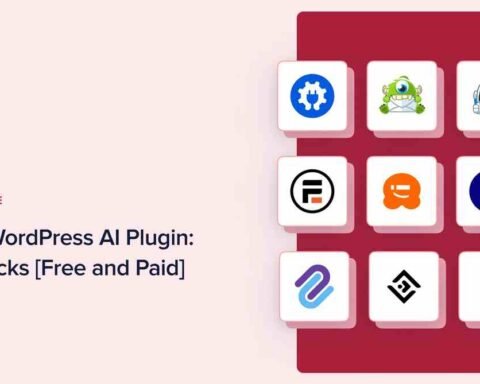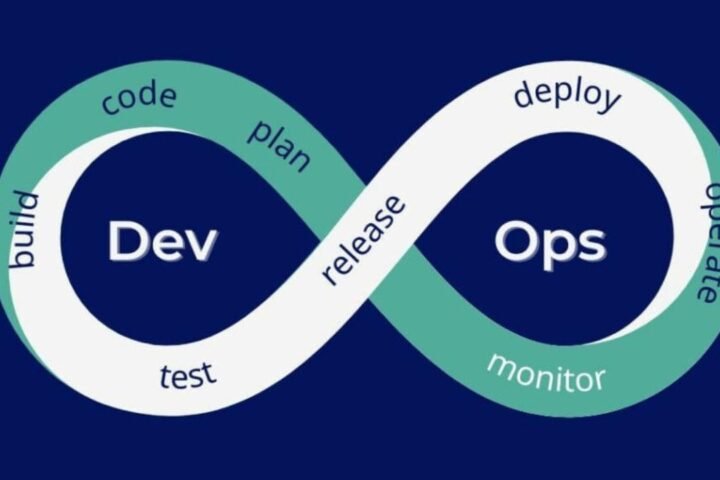Getting to Know AI in Digital Marketing
AI, or artificial intelligence, is now a key part of digital marketing and has changed the way businesses interact with their customers. AI is basically when machines, especially computer systems, try to mimic how humans think and act. In the last few years, AI has become much more important in digital marketing, mostly because it can quickly analyze huge amounts of data and give useful information. Marketers are using AI more and more to improve their plans, make things run more smoothly, and give users experiences that are tailored to them.
Data analysis is one of the most useful things that AI can do for digital marketing. With so much data being created every day, it’s getting harder and harder to figure out what customers want and how they act using traditional methods. AI algorithms can quickly look at this data and find patterns and trends that help marketers make decisions. Because of this, businesses can better divide their audiences into groups and make their content more relevant to each group, which increases customer engagement.
Personalization is another important part of AI in digital marketing. It means making each user’s experience different based on what they’ve done before. Marketers can use AI technologies like machine learning and natural language processing to send targeted recommendations, personalized email campaigns, and adaptive content that speaks to each customer. This higher level of personalization can make customers much happier and more loyal, making it a key strategy in a market with a lot of competition.
Lastly, automation shows how AI has changed the way marketing works. Businesses can save time and money by automating tasks that are done over and over again, like email marketing, posting on social media, and even answering customer service questions through chatbots. This lets marketing teams work on bigger projects while still keeping in touch with customers in a way that is consistent and quick. As AI gets better, it will be used more and more in digital marketing. This will lead to better strategies and a better understanding of how people act.
Understanding AI Technologies Used in Marketing
Artificial Intelligence (AI) is changing the face of digital marketing by bringing in new technologies that make it easier for consumers to interact with brands and make marketing plans better. Machine learning is a key part of these. It lets marketers look at a lot of data to find patterns and trends. For example, machine learning algorithms can look at data about how people behave as customers and make marketing efforts more tailored to them. This can show up in recommendation engines that suggest products based on what you’ve bought or looked at before.
Natural Language Processing (NLP) is another important AI technology. This part of AI lets machines understand and make sense of human language in a way that is useful and meaningful. Marketers use NLP to figure out how people feel about their brands or products by keeping an eye on social media and reading customer reviews. Chatbots, which are virtual assistants that help customers and improve the user experience by answering questions in real time, are also powered by NLP.
Chatbots are becoming more and more popular as an important AI tool in digital marketing. They make it easy to talk to customers right away, help them, and guide them through the sales funnel. Many e-commerce sites, for instance, use chatbots to help users find products, answer common questions, and even help them finish their purchases. This not only makes the user experience better, but it also increases conversion rates.
Finally, predictive analytics is another important way that AI is used in marketing. This technology helps businesses make decisions based on data by using past data and algorithms to predict what will happen in the future. Predictive analytics can figure out how customers might act and what they might like, which makes it possible to run marketing campaigns that are more likely to connect with certain groups of people. Businesses can improve their marketing strategies and make customers happier by using these AI technologies.
Enhancing Customer Experience with AI
Artificial Intelligence (AI) has become an important part of improving the customer experience in digital marketing. AI lets marketers use advanced algorithms and huge data sets to create personalized content and marketing plans that really connect with people. One of the most important uses of AI in this area is customer segmentation, which lets businesses group their customers based on things like demographics, buying habits, and preferences.
This advanced segmentation leads to a more sophisticated approach to marketing because it lets brands make ads that are tailored to the specific needs of each segment. For example, marketers can use machine learning to look at past data and guess how consumers will act and feel in the future. This information makes it possible to create personalized plans that not only get the attention of potential customers but also strengthen relationships with current ones.
Also, using AI in customer service makes it possible to personalize things in real time. AI can change its recommendations for content, deals, or products based on how each user interacts with it on different platforms. It does this by constantly looking at how users interact with it. This ability to change in real time not only keeps people interested, but it also increases conversion rates because people are more likely to respond positively to content that matches their current interests.
AI also plays a big part in automating interactions with customers. Chatbots and virtual assistants use natural language processing (NLP) to answer customer questions right away, making the interaction smooth. These AI-powered tools help keep customers happy by answering questions quickly. This shows how technology can be used to make service delivery better overall.
In conclusion, adding AI to digital marketing strategies greatly improves the customer experience by allowing for personalized communication, better customer segmentation, and faster service delivery. This new technology not only changes how people act as customers, but it also changes how businesses interact with their customers. This shows how important AI is in today’s marketing world.
AI in Data Analysis and Insights Generation
Artificial intelligence (AI) has changed the world of digital marketing in a big way, especially when it comes to analyzing data and coming up with new ideas. There is a lot of data coming in from many places these days, such as social media, website interactions, and customer feedback. These marketers can quickly and accurately process and analyze this data thanks to AI-powered tools. This gives them insights that were impossible to get before because there was so much information available.
AI uses advanced algorithms and machine learning to find patterns and trends in the data. For example, predictive analytics tools use data from the past to guess how people will act in the future. AI helps marketers come up with better strategies that are tailored to their audience’s preferences by looking at things like how often people visit a website, how often they buy something, and how engaged they are. Businesses can stay ahead of their competitors by changing their plans based on real-time information that lets them see what will happen in the market.
AI also reduces the chances of people making mistakes when they read data. When people do traditional data analysis, they often have to enter data by hand and make decisions based on their own opinions. This can lead to mistakes. AI algorithms, on the other hand, process data without bias, giving objective insights that help people make better decisions. Natural language processing (NLP) and other technologies let marketers look at text data from different platforms to figure out how customers feel. This helps them improve their messaging and overall marketing strategy.
Adding AI to data analysis not only makes it more efficient, but it also gives marketers the power to make smart decisions based on reliable information. As the ability to use data more effectively grows, businesses will definitely rely more on AI in digital marketing. This will help them respond quickly to changes in the market.
Automation of Marketing Campaigns
As digital marketing changes quickly, the use of artificial intelligence (AI) has become a game-changer, especially when it comes to automating marketing campaigns. AI uses advanced algorithms and data analysis to make different marketing tasks easier, which helps businesses reach more people and connect with them better. AI-driven automation makes a lot of things easier, like email campaigns, social media posts, and ad placements.
One of the main benefits of automating marketing campaigns is that they save time. Marketers can use AI tools to plan and run many campaigns at the same time, which saves them a lot of time that they can use for strategic planning and creative work. In today’s fast-paced digital world, where quick responses are key to keeping people interested and happy, this increased efficiency is especially important.
Also, AI-driven analytics make it possible to change campaigns in real time. AI systems let marketers change their plans right away by gathering and analyzing data on how customers act and what they like. This ability to change campaigns based on real-time performance metrics not only makes marketing messages more relevant, but it also increases conversion rates. For example, marketers can change the content of emails, change the targeting of social media ads, or improve the placement of ads based on what they learn from AI analysis. This makes sure that their marketing is always in line with what their audience wants.
Automation goes beyond just scheduling. It includes a wide range of advanced techniques, such as predictive analytics and making content that is unique to each user. Marketers can use these technologies to create personalized experiences that connect with each customer, which will increase engagement and build brand loyalty. AI-driven automation of marketing campaigns ultimately helps businesses reach their goals more quickly and effectively.
What is predictive analytics and how does it work?
Predictive analytics is a big step forward in digital marketing because it lets businesses predict market trends, understand how customers act, and measure how well their sales are doing. Companies can use statistical algorithms and machine learning to look at past data and make predictions about what will happen in the future. This powerful tool lets businesses make decisions based on data instead of just gut feelings.
Predictive analytics is based on a number of algorithms that can handle huge amounts of data. Some of these are regression analysis, decision trees, and neural networks. Each algorithm gives businesses a different view of their audience, which helps them divide it up correctly. For example, regression analysis helps companies figure out how different factors, like changes in price and customer buying habits, are related to each other. On the other hand, decision trees help marketers figure out what factors are most important to customers when they make a decision, which helps them create targeted campaigns.
Predictive analytics is very useful for predicting how customers will act. Businesses can not only guess what products or services a customer is likely to buy, but also when and what they like by looking at past interactions. This information helps businesses tailor their marketing messages and timing, which increases conversion rates and builds customer loyalty. Also, companies can take steps to keep valuable customers by knowing how likely they are to leave, which will help them improve their marketing strategies.
Predictive analytics can also have a big effect on sales performance. Finding patterns in sales data, predicting how sales will change in the future, and making sure that inventory management matches expected demand are all very important for efficiency. Businesses can use these insights to better use their resources and improve the effectiveness of their marketing as a whole. As a result, using predictive analytics in digital marketing strategies is no longer just a good idea; it’s becoming necessary to stay ahead of the competition in a market that is becoming more data-driven.
Problems with Using AI in Marketing
More and more businesses are using artificial intelligence (AI) to improve their marketing strategies, but they face a number of problems that can make it harder to use AI effectively. Data privacy is one of the most important issues. Because AI systems use a lot of customer data to give each user a unique experience, businesses have to deal with the complicated world of data protection laws and rules like GDPR. If you don’t follow these rules, you could face harsh penalties and harm your brand’s reputation.
Another big problem is that you need skilled workers. To use and keep AI technologies running, you need to know a lot about both marketing and data analysis. A lot of businesses might not have the right people on staff to effectively manage and understand AI-driven insights. This lack of skills can lead to marketers not using AI to its full potential, which means they miss out on some of the benefits these technologies can offer.
The costs of using and keeping AI technologies up to date are also a big problem. AI can give you a good return on investment (ROI) over time, but the initial costs of software, infrastructure, and training can be high. Smaller businesses may have trouble setting aside enough money for these advanced tools, which could create a gap between larger companies and smaller ones in the market.
Finally, organizations that don’t want to change can make it even harder for AI to be used in marketing. Employees might be worried about using new technologies in their normal work because they are afraid it will cause them to lose their jobs or mess up their work. To get past this resistance, you need to use good change management techniques to make sure that everyone involved understands the benefits of AI and feels supported during the transition.
What AI Will Do in Digital Marketing in the Future
As we get deeper into the 21st century, the use of artificial intelligence (AI) in digital marketing is changing all the time, and it promises to change the way businesses interact with their customers in big ways. Not only are advanced AI technologies improving marketing strategies, but they are also changing how people interact with brands, making those interactions more personal and useful. One of the main trends we can expect is that more and more people will use data analytics powered by AI. Businesses can learn a lot about what customers like, how they act, and what trends are happening by using a lot of data. This lets them target their marketing efforts with amazing accuracy.
Also, the rise of machine learning and predictive analytics is going to change the way digital marketing works. These technologies help marketers guess what customers want and need, which leads to a more proactive approach to marketing campaigns. Because of this, businesses can send personalized content and deals to each customer, which makes them happier and more loyal.
The rise of conversational AI is another important trend. Businesses are coming up with new ways to interact with their customers in real time thanks to the widespread use of chatbots and virtual assistants. This not only makes customer service better, but it also makes it easier to interact across different platforms. As these technologies get better, the lines between manual and automated customer interactions will get even blurrier, pushing the limits of user experience even more.
Also, as people get used to personalized marketing, the ethical issues surrounding the use of AI will get more attention. Companies will have to be very careful about how they deal with these problems. They need to be open and honest while still using AI to improve their plans.
In the end, the future of AI in digital marketing looks bright and full of chances for companies that are willing to change and try new things. Companies can improve their marketing and stay ahead of the competition by using AI-based strategies.
The end: AI’s ability to change things
The digital world is changing quickly these days, and the power of Artificial Intelligence (AI) to change digital marketing is huge. In this conversation, we’ve talked about how AI improves different parts of marketing strategies, such as delivering personalized content and using predictive analytics to help people make decisions. AI technologies help marketers understand how people behave better by using a lot of data. This lets them target their ads more accurately and run more successful campaigns.
Businesses that want to stay competitive must use AI tools in their digital marketing plans. As the digital world gets more crowded, regular marketing methods may not be enough on their own. Companies that use AI-powered solutions can make their campaigns better, get more people to interact with them, and in the end, get more people to buy. Also, AI’s automation features can give marketers more time to work on creative projects and improve their overall strategy.
AI’s ability to keep learning and changing also means that marketing can be improved in real time based on how customers interact with it and what they say. This changing nature not only makes marketing campaigns more effective, but it also builds stronger relationships with customers by giving them personalized experiences that fit their needs. As businesses deal with the problems and chances that come with digital innovation, using AI technology becomes an important part of making sure that growth continues.
In general, the use of AI in digital marketing represents a major change that businesses must accept. By doing this, marketers can not only improve how well their businesses run, but they can also make their customers’ experiences more personal, which is the first step toward success in a competitive business world. Marketers need to use AI’s capabilities to stay relevant and stay ahead of the curve in digital marketing.
























